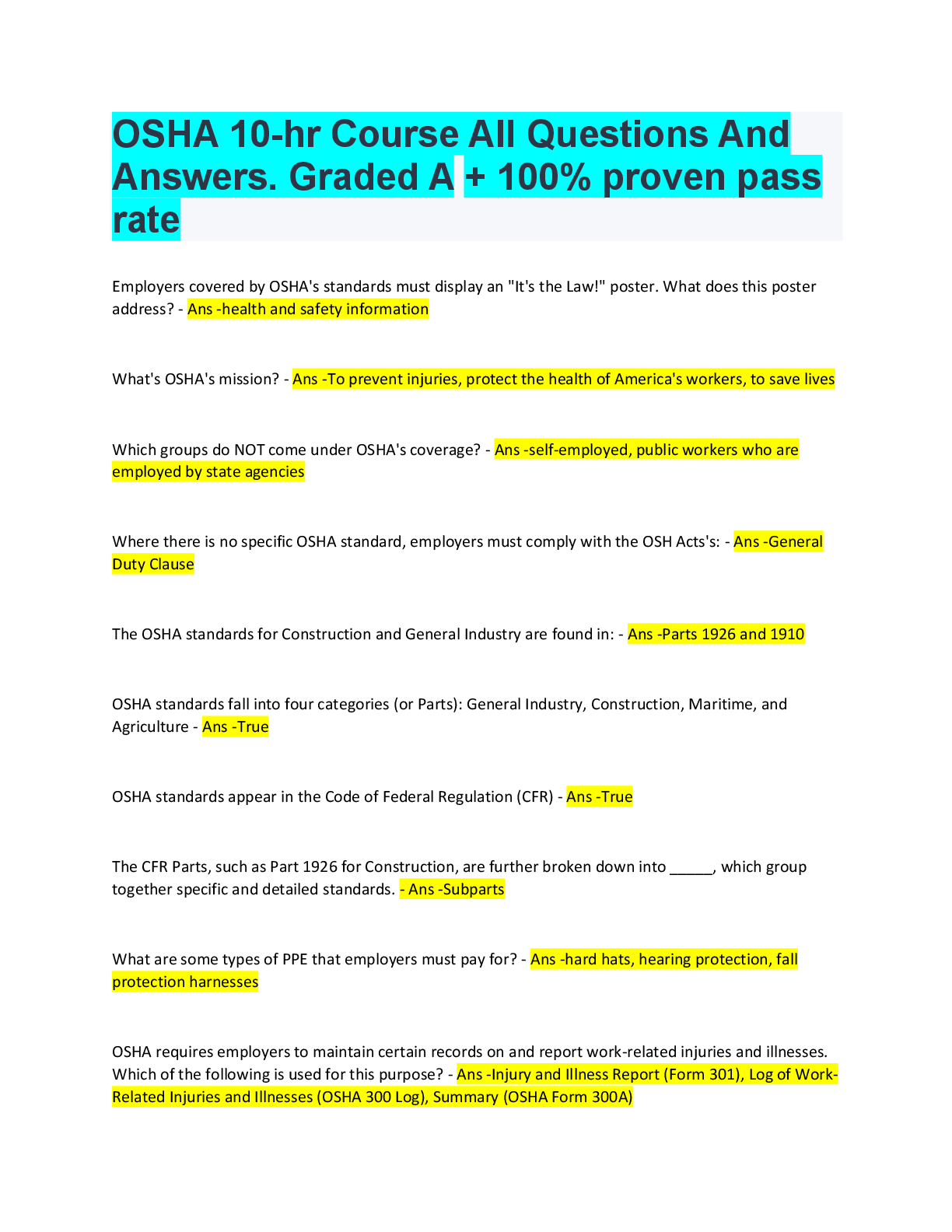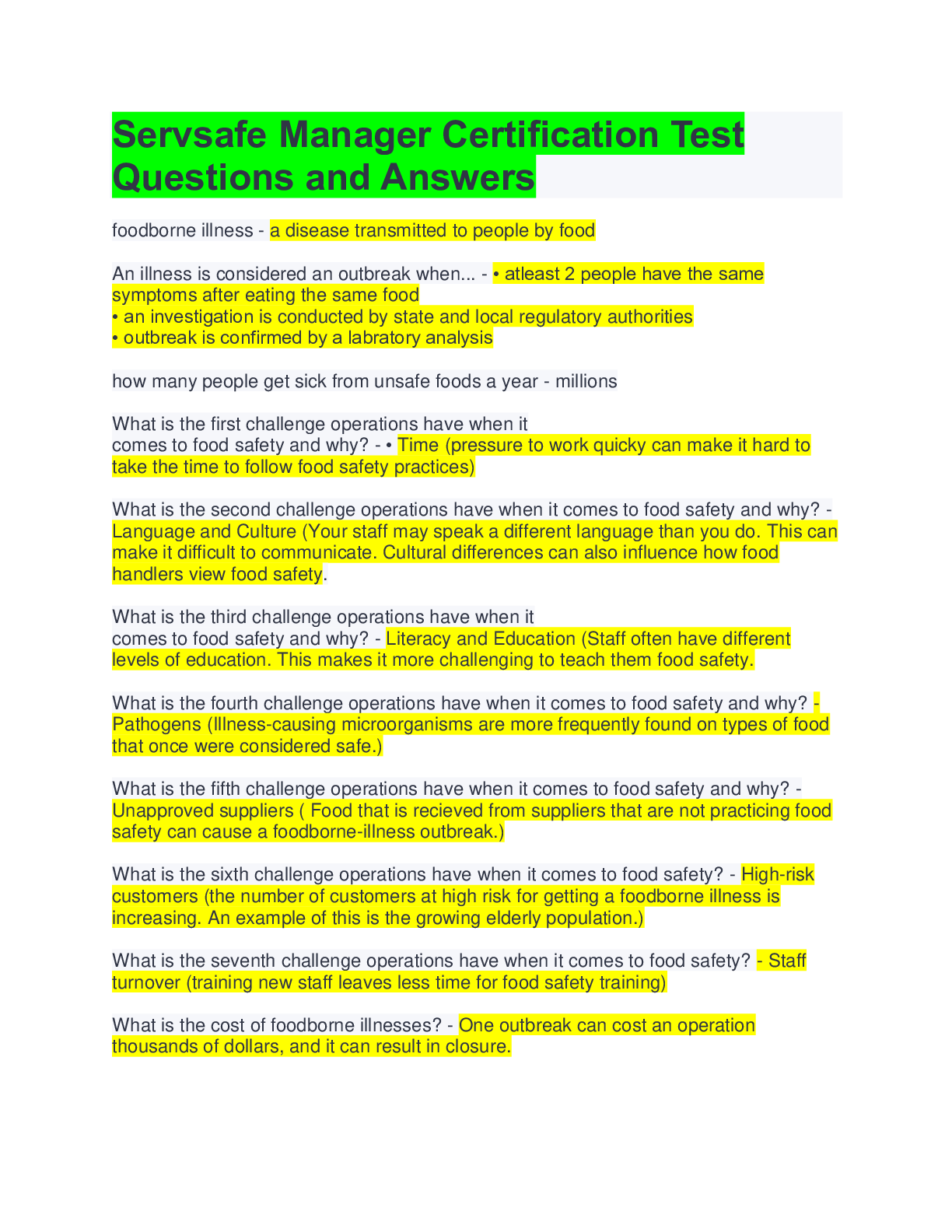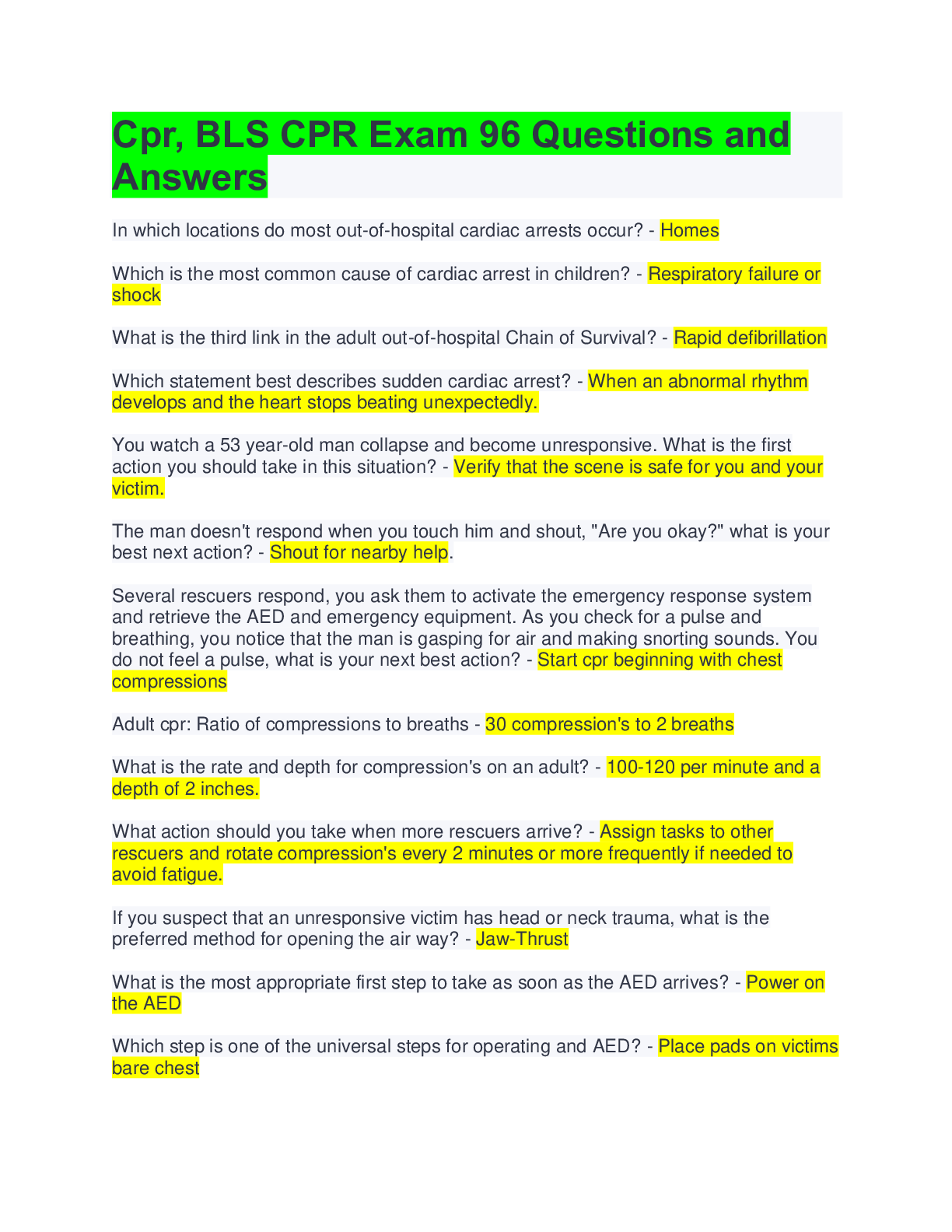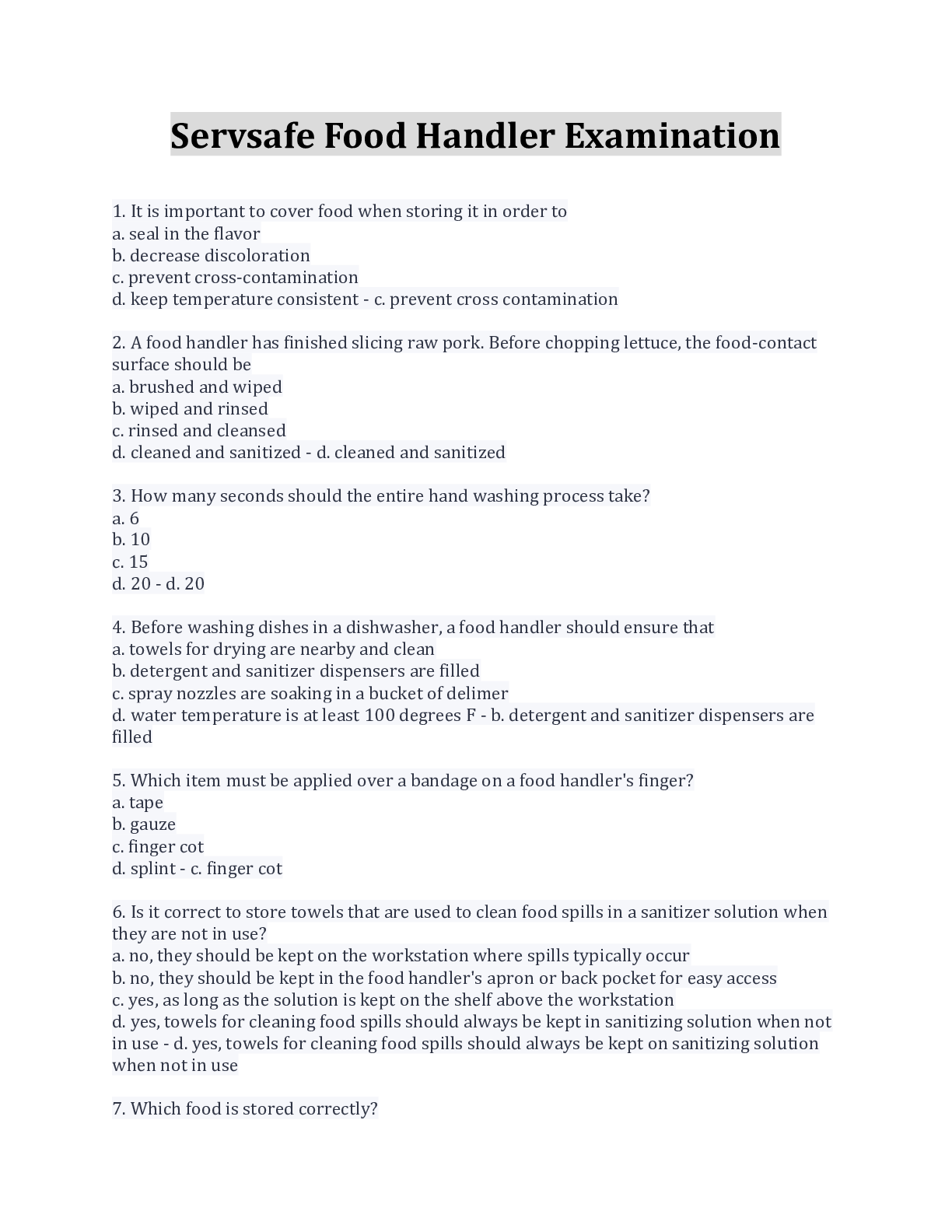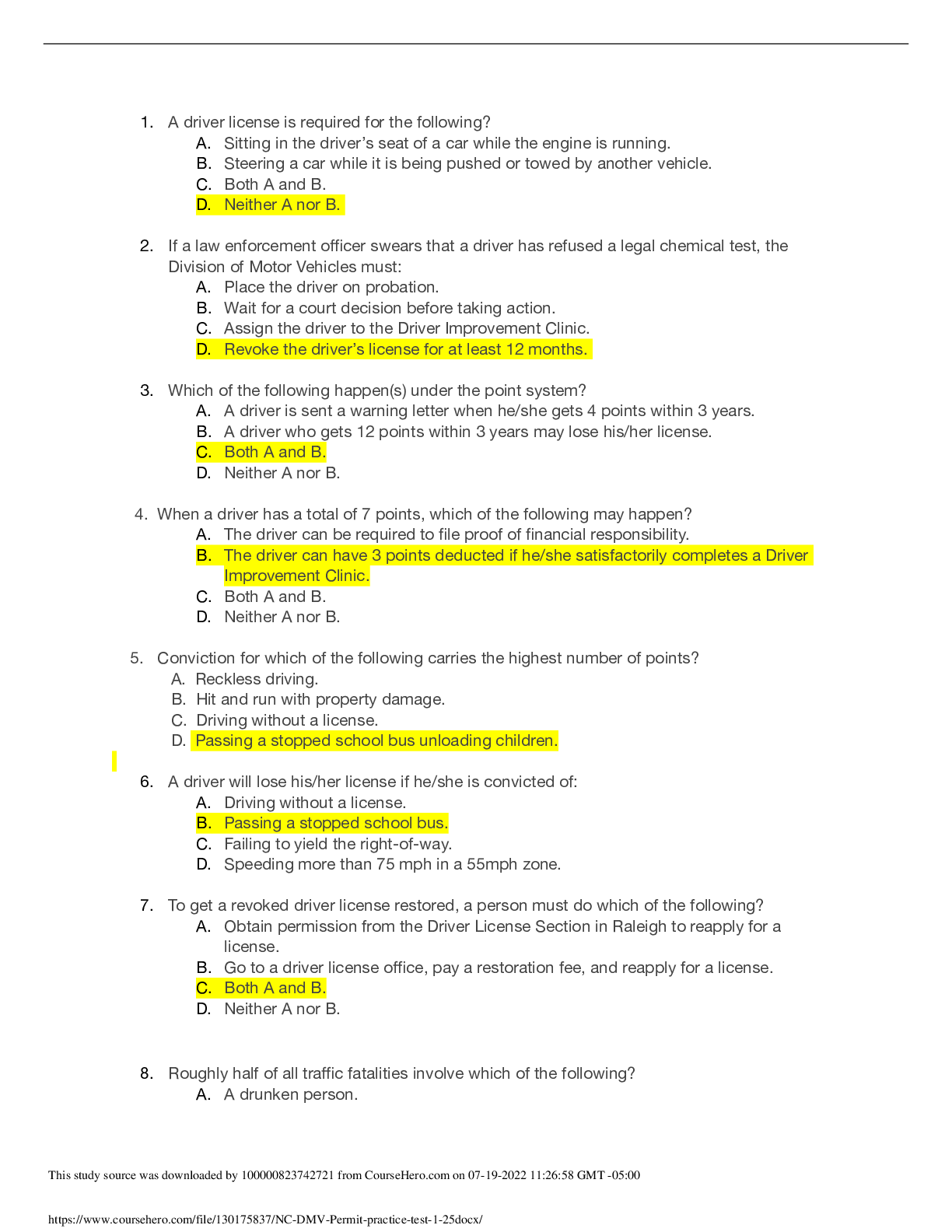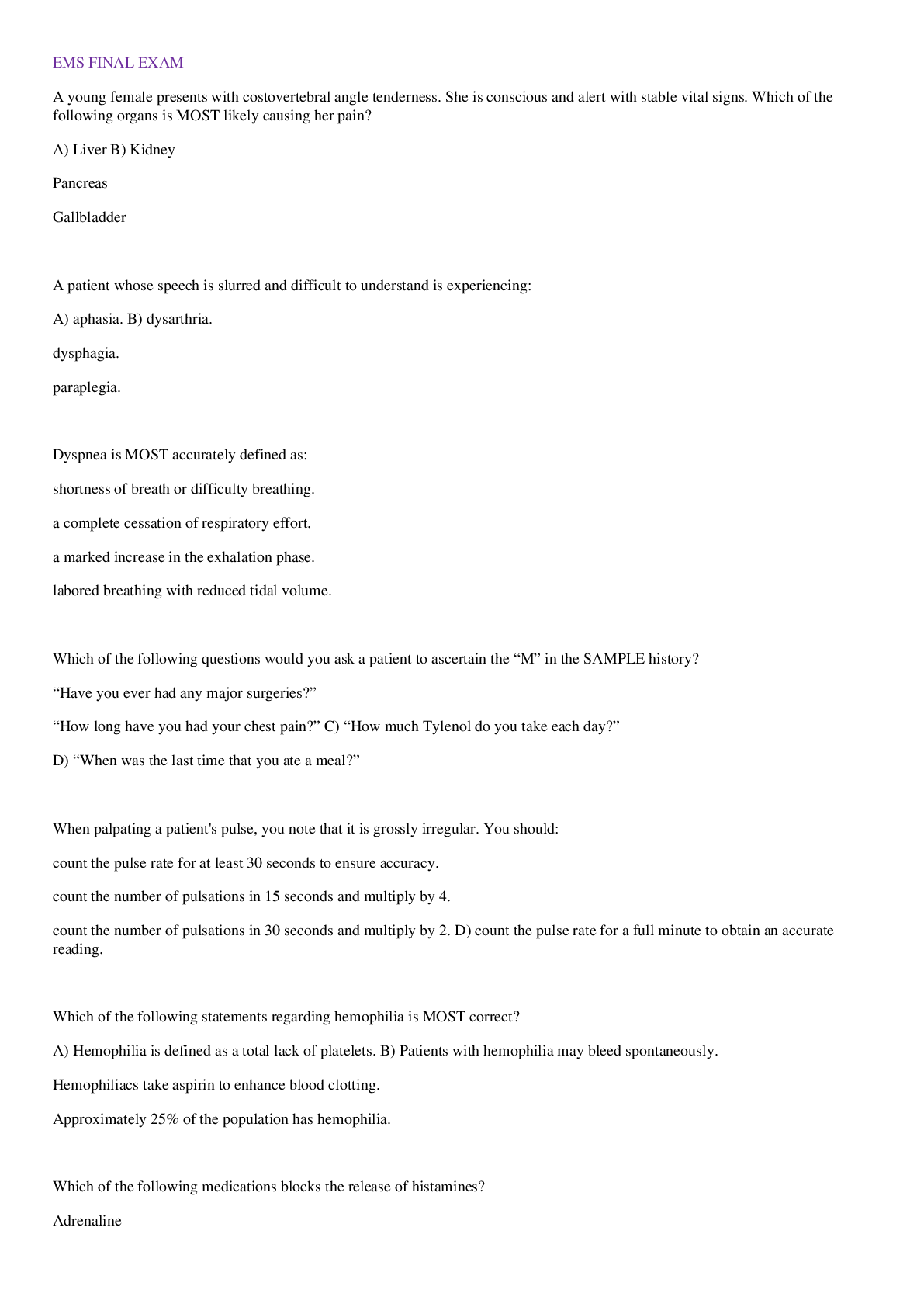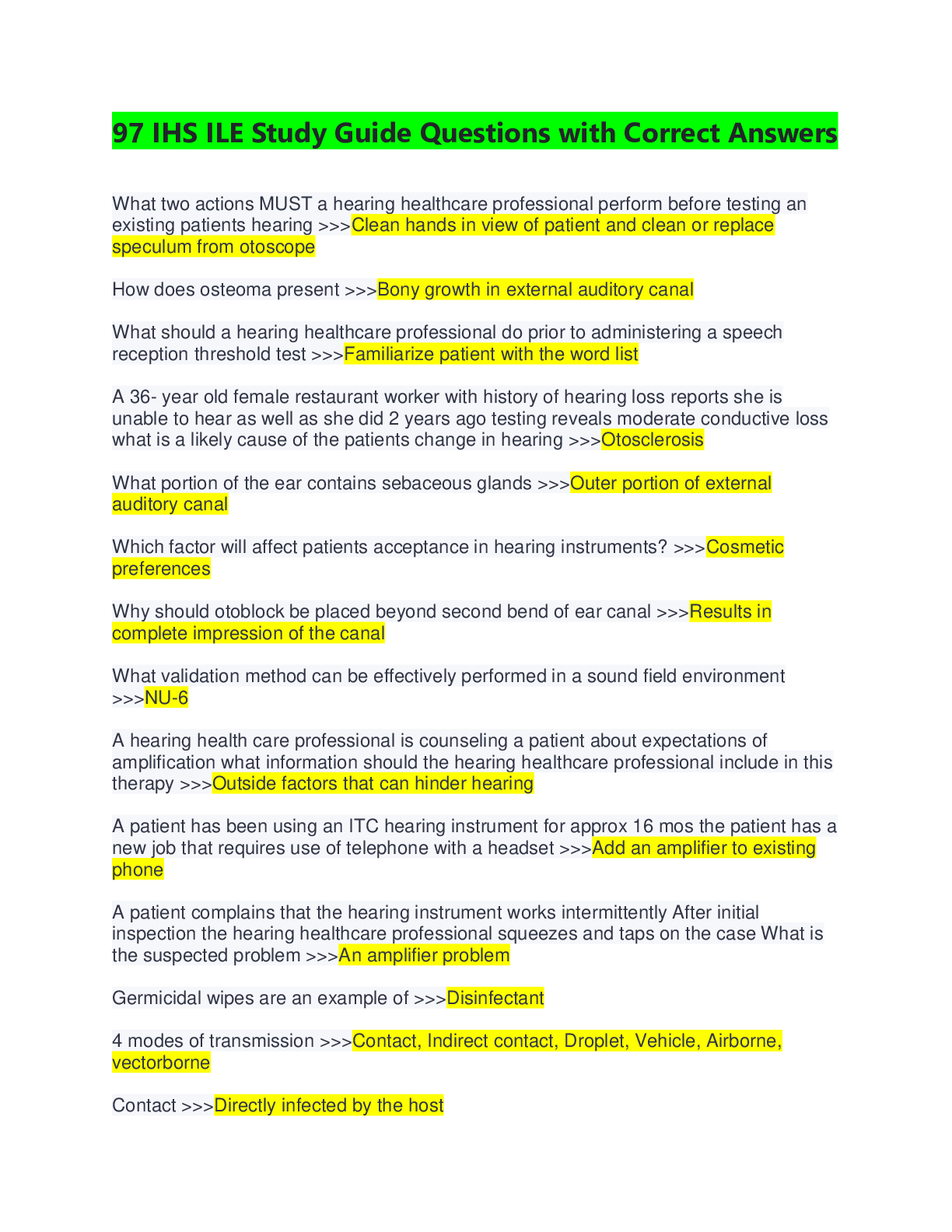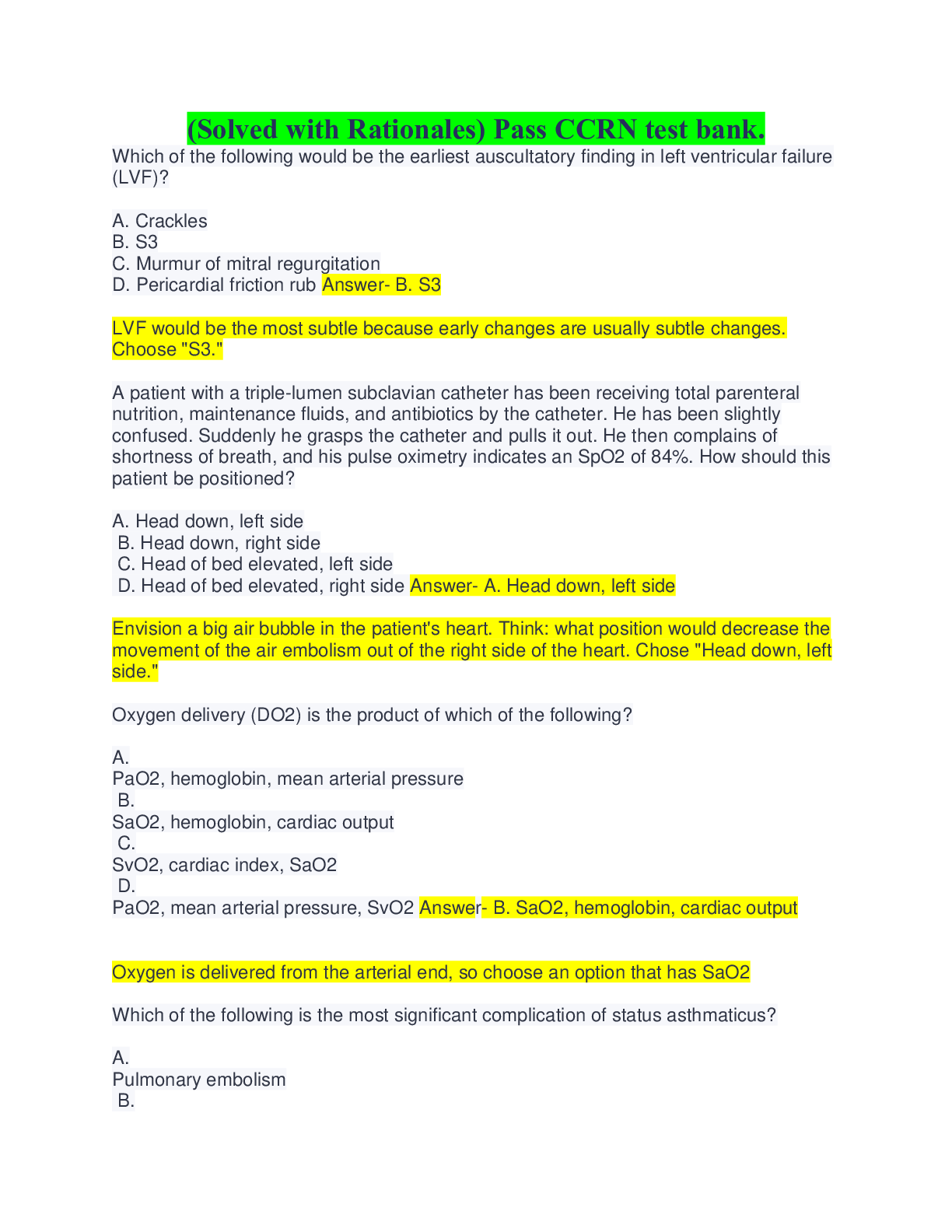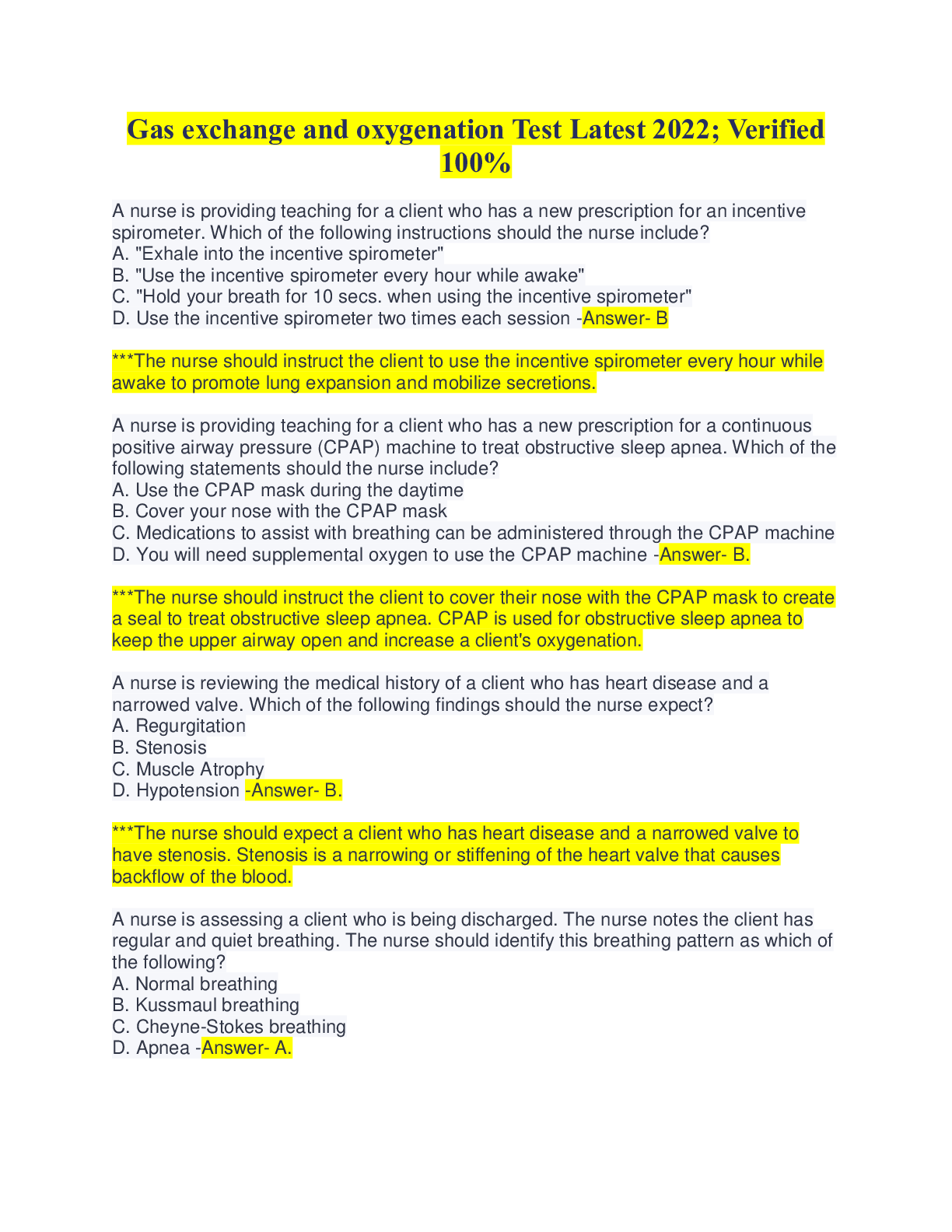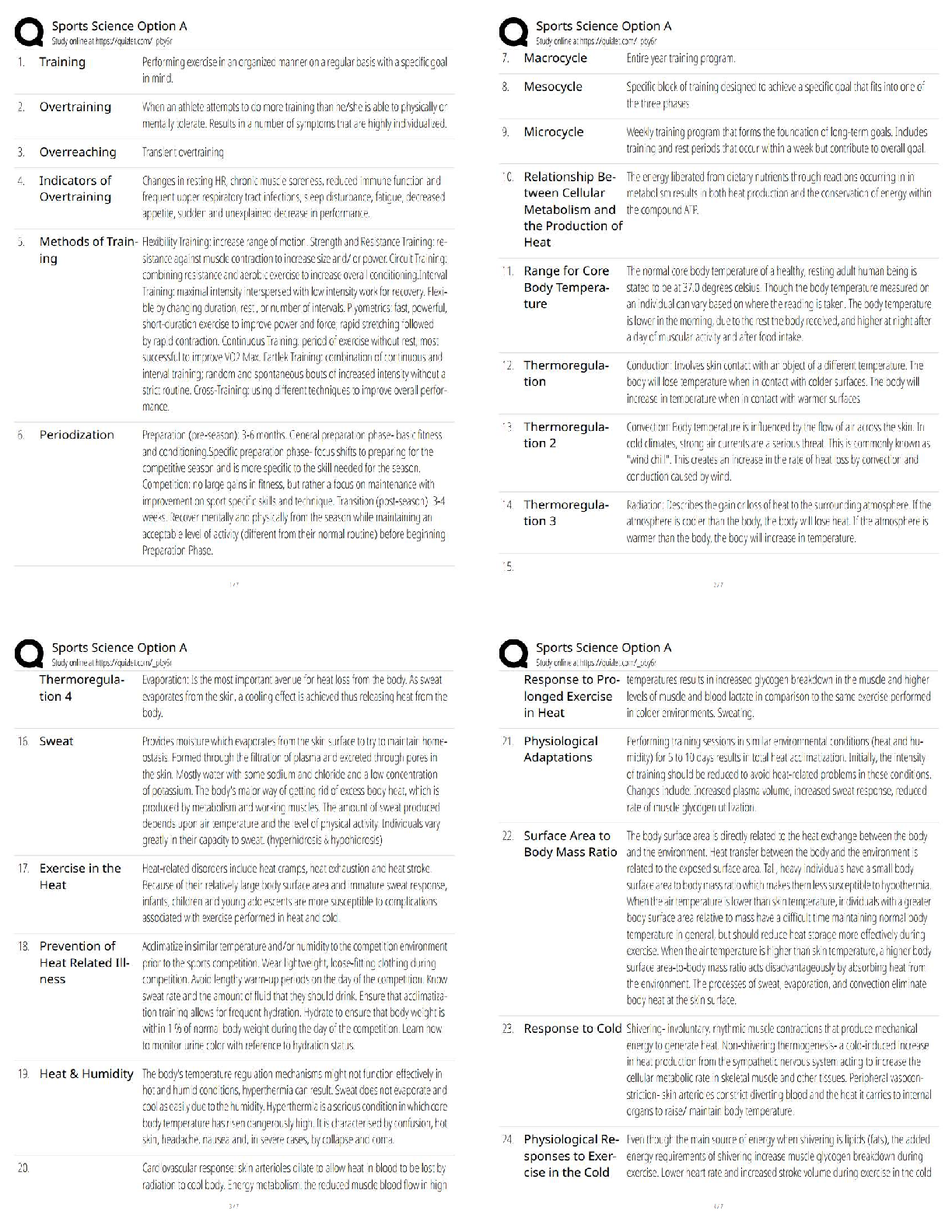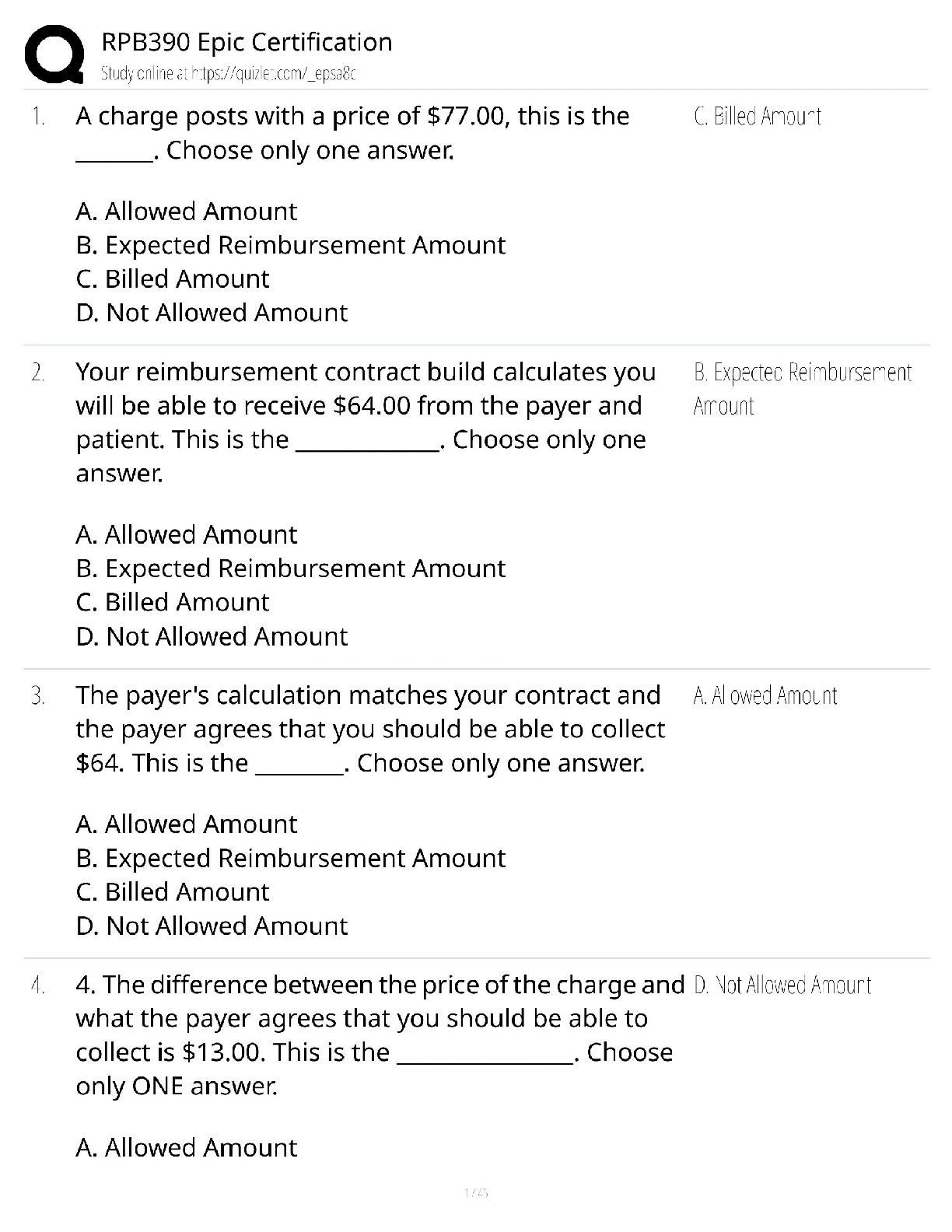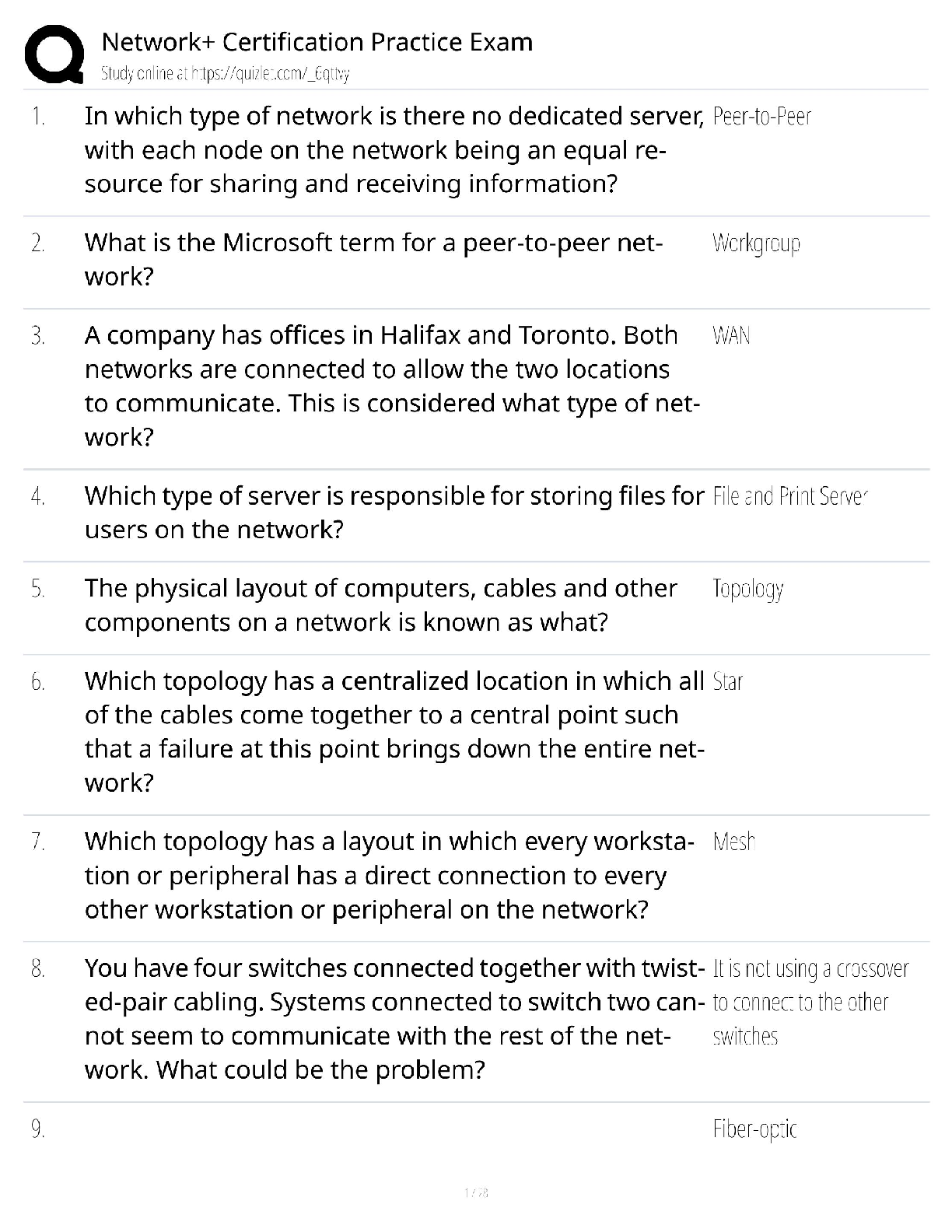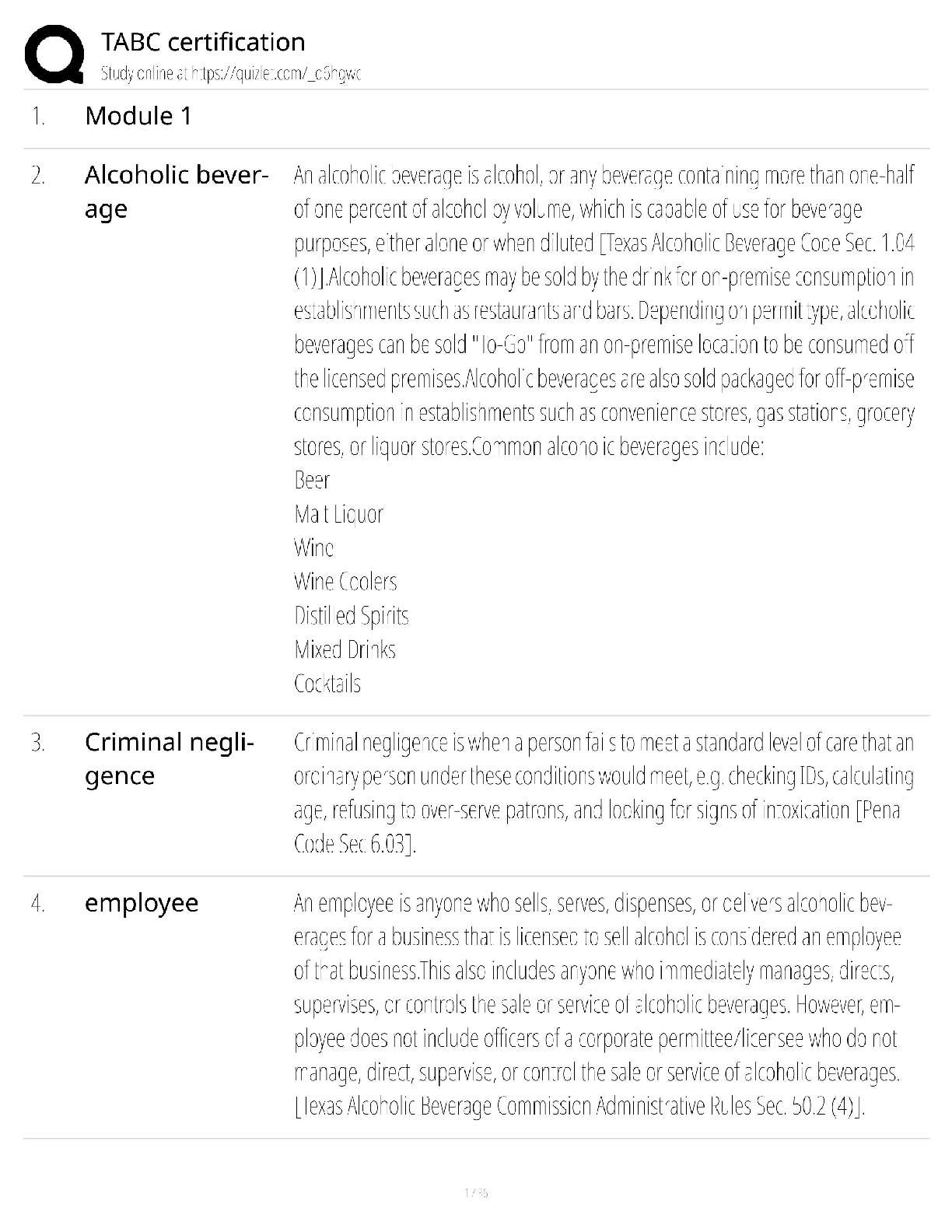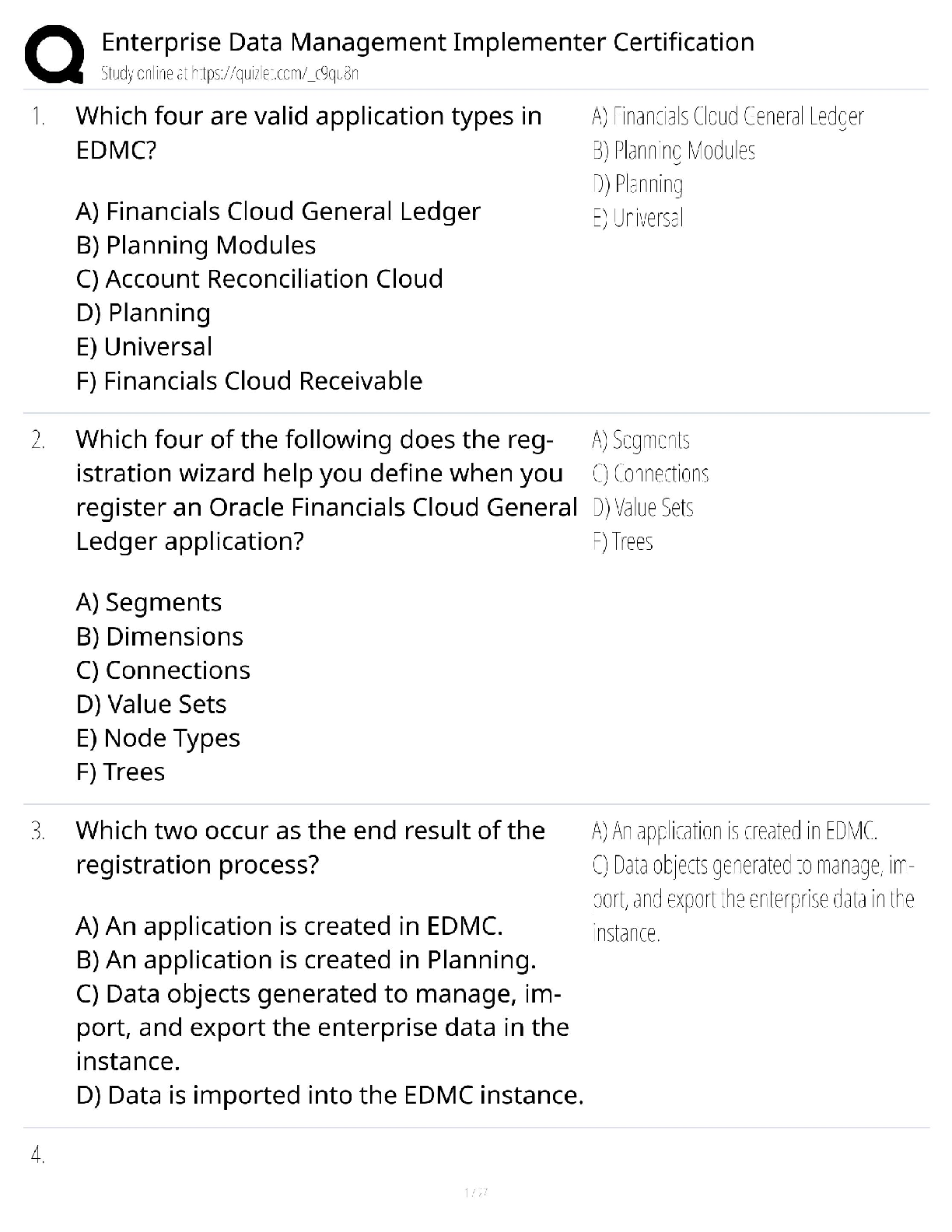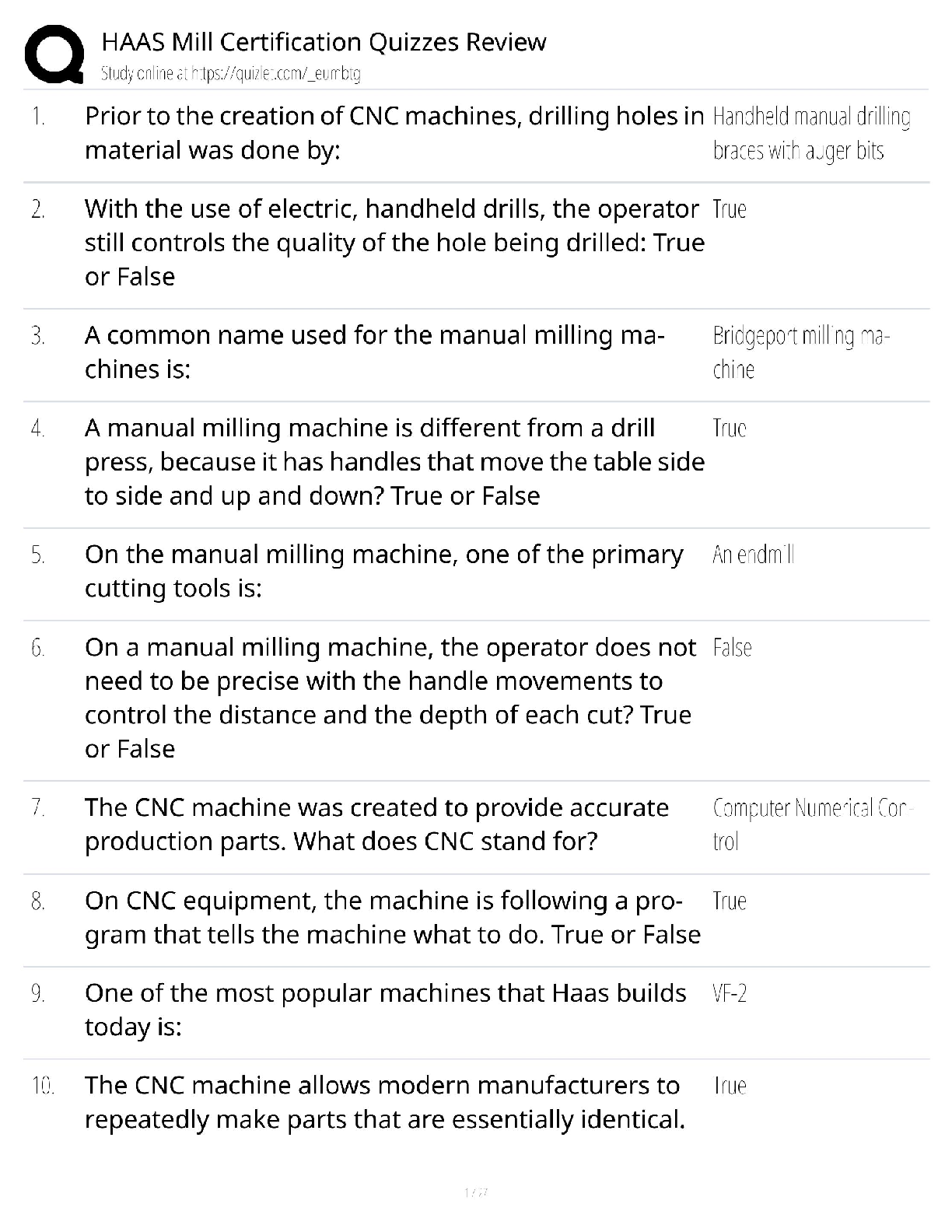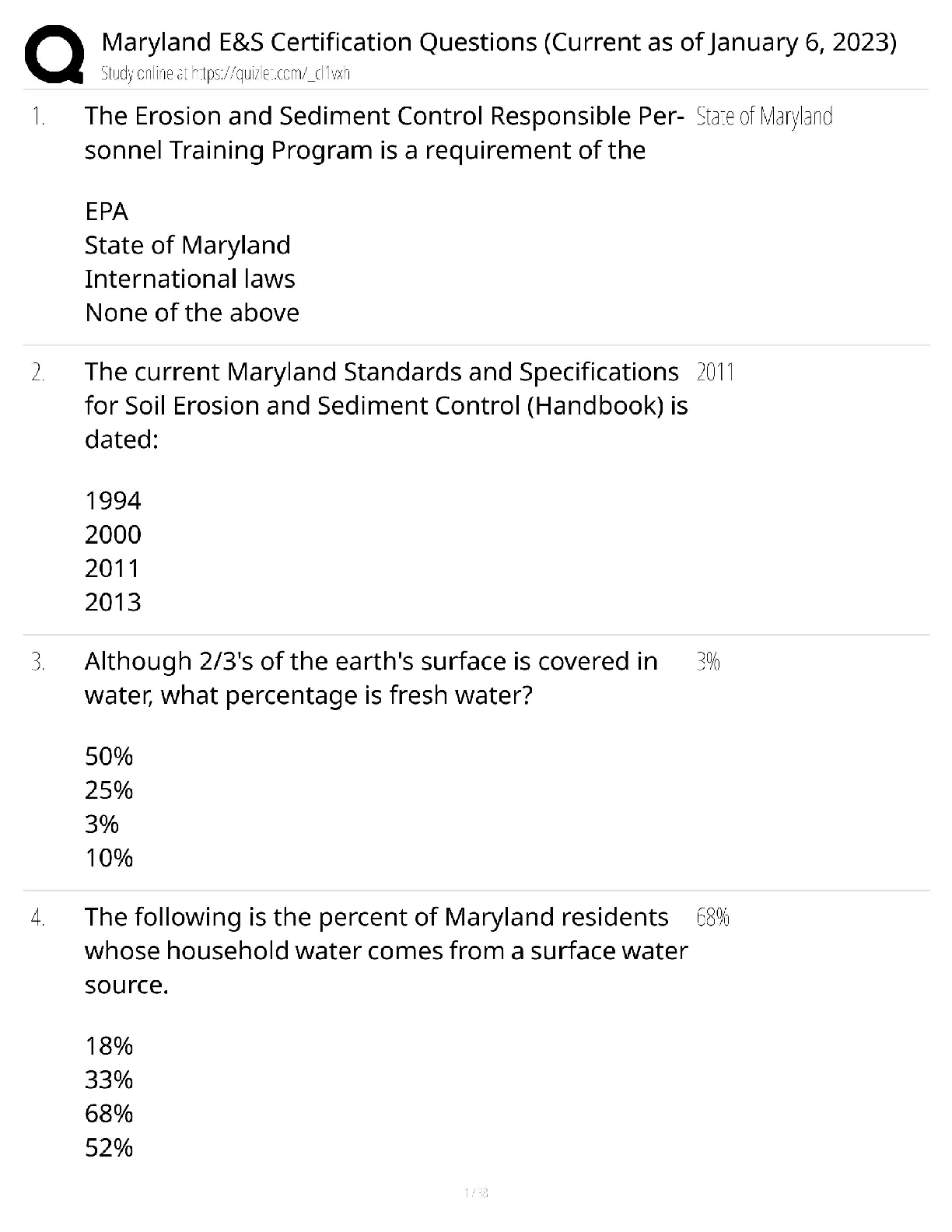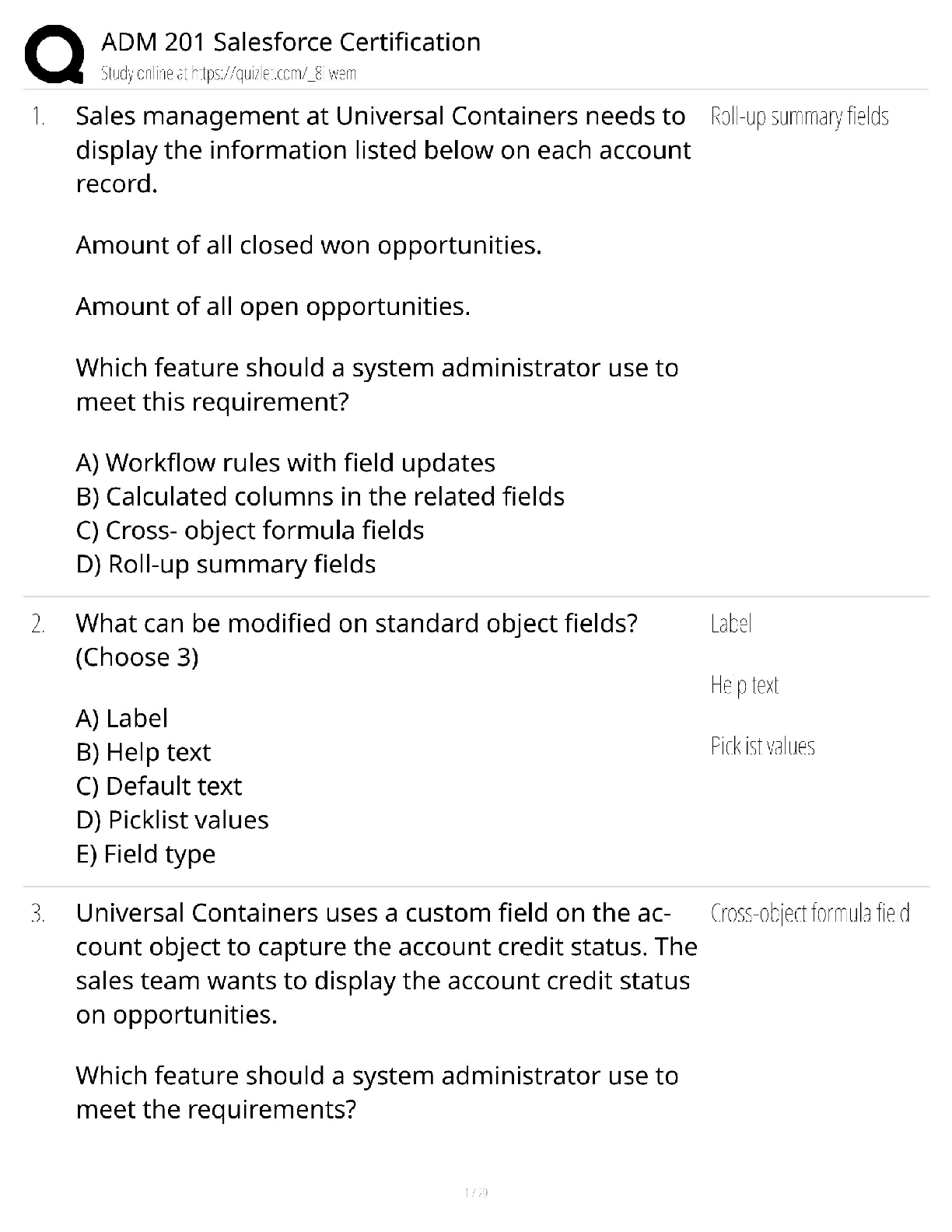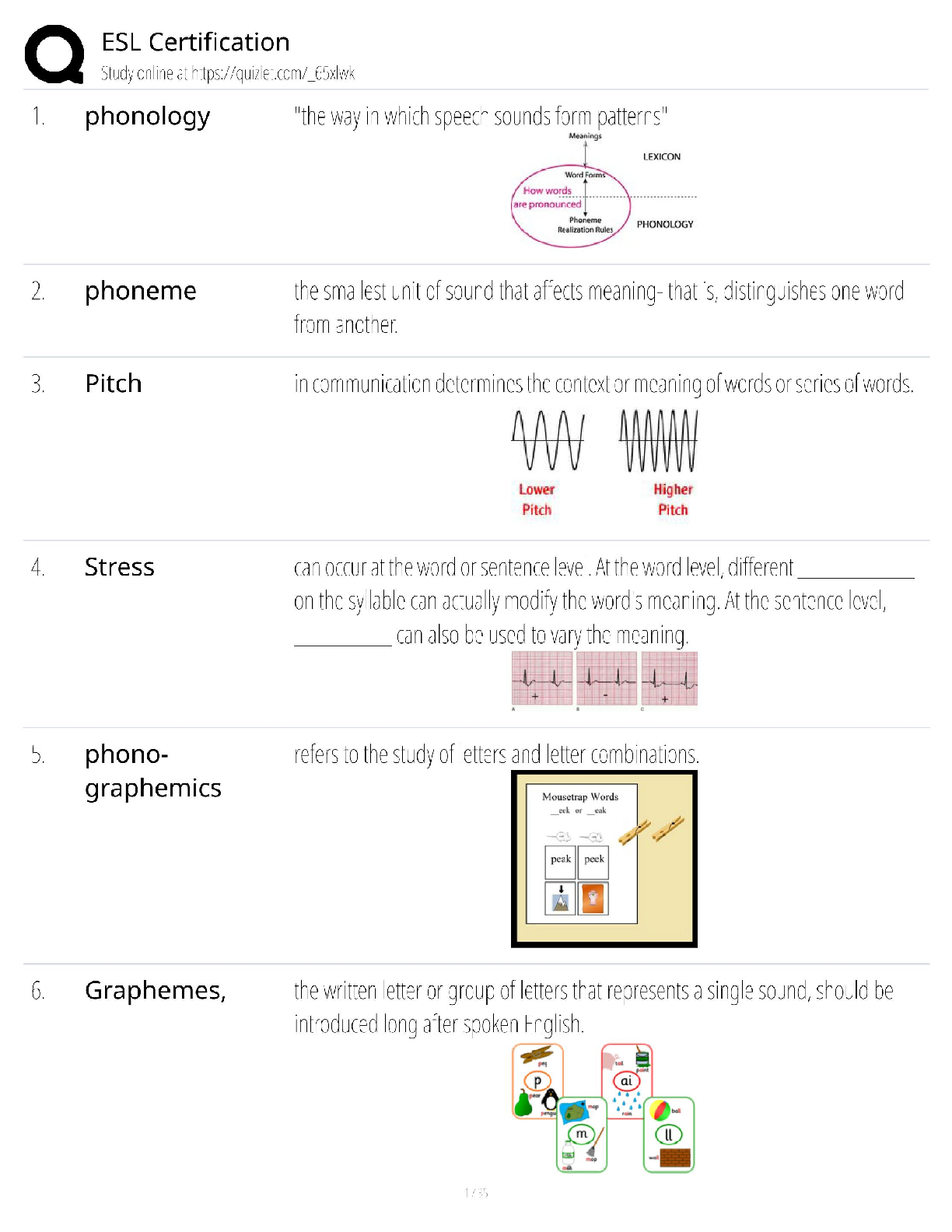*NURSING > QUESTIONS & ANSWERS > Schizoaffective, Delusional, and other Psychotic Disorders NCLEX Questions and Answers 2022; Solved (All)
Schizoaffective, Delusional, and other Psychotic Disorders NCLEX Questions and Answers 2022; Solved correctly
Document Content and Description Below
Schizoaffective, Delusional, and other Psychotic Disorders NCLEX Questions and Answers 2022; Solved correctly During an interview, a client tells the nurse that he is in love with the local televisi ... on anchorwoman, but that she can't let anyone know because her job could be in serious jeopardy. He says, "She approached me first and we fell in love." The client's statements are unfounded. The nurse interprets these statements as reflecting which type of delusion? 1. Somatic 2. Erotomanic 3. Grandiose 4. Perscutory -Ans-2. Erotomanic The erotomanic subtype is characterized by the delusional belief that the client is loved intensely by the "loved object." who is usually married, of a higher socioeconomic status, or otherwise unattainable. The client believes that the loved object's position in life would be in jeopardy if his or her true feelings were known. In addition, the client is convinced that he or she is in amorous communication with the loved object. The loved object is often a public figure (e.g., movie star, politician), but may also be a common stranger. The client believes that the loved object was the first to make advances and fall in love. Clients presenting with grandiose delusions are convinced they have a great, unrecognized talent or have made an important discovery. A less common presentation is the delusion of a special relationship with a prominent person (i.e., an adviser to the president) or actually being a prominent person (i.e., the president). The central theme of the jealous subtype is the unfaithfulness or infidelity of a spouse or lover. The central theme of somatic delusions involves bodily functions or sensations. These clients believe they have physical ailments Medications are not often used for a person with delusional disorder, but which of the following medication classifications are helpful during exacerbations? SATA 1. Benzodiazepines 2. Antidepressants 3. Antipsychotics 4. Antianxiety 5. Nonbenzodiazepines -Ans-1. Benzodiazepines 3. Antipsychotics Antipsychotic agents or benzodiazepines are helpful during exacerbations. Other treatments include supportive therapy, development of coping skills, cognitive therapy, and social skills training. Antianxiety, antidepressants, and nonbenzodiazepines are not particularly useful for those diagnosed with delusional disorderA client is diagnosed with a delusional disorder. While providing care to the client, the nurse assesses the client's delusions. Which of the following would be least appropriate for the nurse to do? 1. Determine the impact of the delusion on the client's safety 2. Evaluate the significance to the client 3. Try to change the client's delusional belief 4. Avoid dwelling on the delusion -Ans-3. Try to change the client's delusional belief By definition, delusions are fixed, false beliefs that cannot be changed by reasonable arguments. The nurse should assess the client's delusion to evaluate its significance to the client, to his safety, and the safety of others. The nurse should not dwell on the delusion or try to change it A client diagnosed with delusional disorder is telling everyone that he is the president of the United States. The client is exhibiting which type of delusion? 1. Erotomanic 2. Jealous 3. Somatic 4. Grandiose -Ans-4. Grandiose Clients presenting with grandiose delusions are convinced they have a great, unrecognized talent or have made an important discovery. A less common presentation is the delusion of a special relationship with a prominent person, or actually being a prominent person. Erotomanic delusions are characterized by the delusional belief that the client is loved intensely by the "loved object," who is usually married, of a higher socioeconomic status, or otherwise unattainable. Persons who have somatic delusions believe they have a physical ailment. The central these of the jealous subtype is the unfaithfulness or infidelity of a spouse or lover [Show More]
Last updated: 3 years ago
Preview 1 out of 8 pages

Buy this document to get the full access instantly
Instant Download Access after purchase
Buy NowInstant download
We Accept:

Reviews( 0 )
$9.00
Can't find what you want? Try our AI powered Search
Document information
Connected school, study & course
About the document
Uploaded On
Aug 16, 2022
Number of pages
8
Written in
All
Additional information
This document has been written for:
Uploaded
Aug 16, 2022
Downloads
0
Views
153

